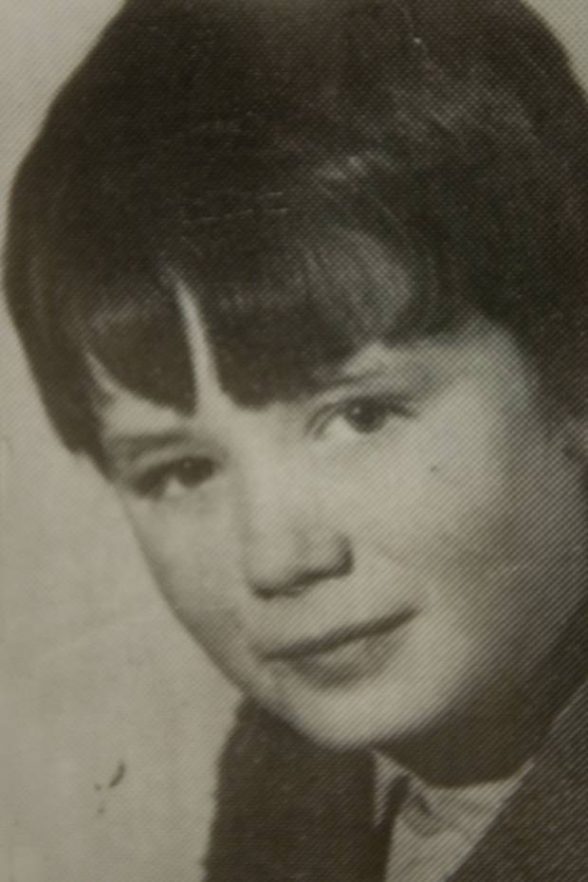
Manus Deery who was 15 when he was shot dead by a British soldier in Derry in 1972. Soldier who fired the fatal shot named at his inquest as William Glasgow who has since died
IT has taken over four decades but the Ministry of Defence has finally admitted what everyone in Derry already knew: Manus Deery was an innocent teenager shot dead by British soldiers.
Even though it has taken 44 years and an inquest for the MoD to hold their hands up to the unlawful killing, the Deery family have this evening spoken of their relief this innocence has finally been accepted by the British State.
Manus Deery was 15 when he was killed in the Bogside area of the city in May 1972.
He had just bought a bag of chips with his first ever wage packet.
At a hearing in Belfast’s Royal Courts of Justice today, a barrister for the MoD and PSNI accepted the teen had not been carrying a weapon and that the shooting breached military guidelines.
Manus’s death was among the most controversial of the Troubles and is one of a number of legacy-related cases being re-examined by the coroner.
The family has always disputed British Army claims that a soldier in a lookout post on Derry’s walls fired at what was believed to have been a gunman, but missed and that the ricochet hit the teenager in the head.
The Royal Welch Fusilier soldier who fired the fatal shot, Private William Glasgow, was never convicted and has since died.
Manus’s sister Helen said today: “I am delighted. They have just said what we have been saying for 44 years.”
She added: “Manus would have been 60 on Thursday.
“It was very important for me, especially this week, that on his 60th birthday I can turn around now and say clearly that he was innocent and the soldier was in breach of the Yellow Card; he acted out of law.”
A fresh inquest was ordered by the North’s Attorney General John Larkin in 2012 and evidence was heard over seven days last month in Derry courthouse before Coroner Mr Justice Adrian Colton QC.
Fifteen witnesses gave oral testimony at the courthouse in Derry – while documentary evidence, including signed depositions, was provided by 11 others.
Today, Mr Justice Colton took final submissions from legal representatives and said he planned to deliver a verdict soon.
Justice Colton said: “I will give a judgment in Derry and will endeavour to do that as soon as possible.”
Earlier, the court heard how the MoD now accepted that Manus’s conduct or that of his peers had not posed a threat to soldiers.
Barrister Martin Wolfe said: “He was behaving lawfully. He was innocent of any wrongdoing at the time of his death.”
The lawyer said it was further acknowledged that the shooting had breached military rules.
“We accept that there was a breach of the Yellow Card and that the decision (to shoot) was premature and cannot be justified.
“The MoD accept that Manus was unarmed and did not pose a threat. That is undisputed,” he said.
However, Mr Wolfe also urged the coroner to take into account the violent context of 1972 — the worst year of the Troubles; Private Glasgow’s age and that he was on his first operational tour of duty in the North of Ireland when considering his verdict.
Fiona Doherty QC, who represented the Deery family, said the death of a child in violent and unexpected circumstances where he was wrongly and publicly labelled a terrorist was among worst experiences a family could endure.
She said: “Manus Deery’s family will obviously never forget what happened.
“It left deep and enduring wounds.”
Although there was agreement on a large number of issues, controversy still centres on what the soldiers at the lookout post saw and whether there was a gunman in the area, the court heard.
“No one else saw this alleged gunman,” added Ms Doherty.
“No evidence of the existence of a gunman has emerged in 44 years. We say that’s significant in this tight-knit community.”
She also drew drew parallels with Bloody Sunday, adding that lack of contemporary accountability and investigatory mechanisms meant civilians were at risk.
“There is no doubt that 1972 was a terrible year. It was the worst year in terms of deaths and injuries in terms of the Troubles.
“It is right to acknowledge that the soldiers were in danger. They were in danger from explosives and gunfire and they were in danger on Derry’s city walls.
“That’s right but it is not this case,” said Ms Doherty.
At the time of the shooting, there was no incoming fire and the soldiers who were in an enclosed and fortified lookout were not in immediate danger, the court was told.
“Innocent civilians like Manus Deery were also in danger from soldiers who were armed with powerful weapons and could fire with virtual impunity,” added Ms Doherty.
Outside the court, Helen Deery said she hoped the inquest verdict would shine a light on the truth and bring closure for her family.
“I think the British justice system, especially in Northern Ireland with the conflict, was set up to break its own laws. Hopefully we are turning that corner now where justice and equality will be seen.
“Hopefully it will be the end. I would love to wake up some day just like everybody else and not have that fight,” she said.
It is hoped Mr Justice Colton will deliver his judgement on the inquest before the end of the year.
Under the current coronial system in the North, he cannot return a verdict of unlawful death.
The High Court judge can only state who the victim was, what happened, when it happened, where it happened and how he/she died.





